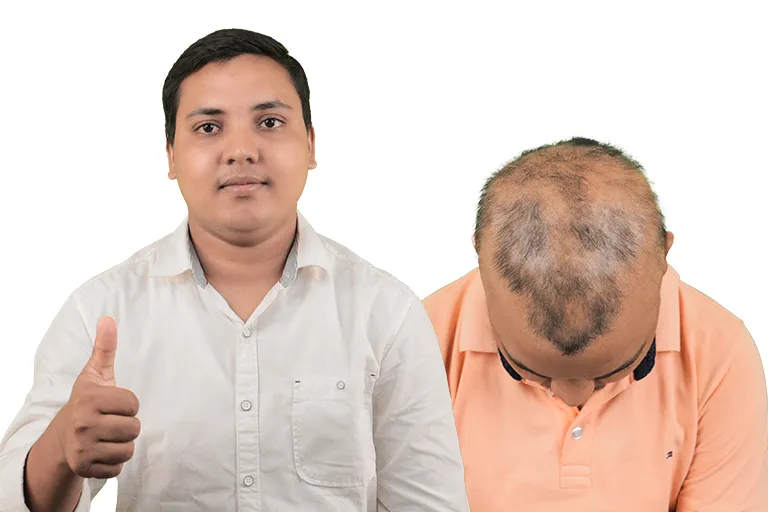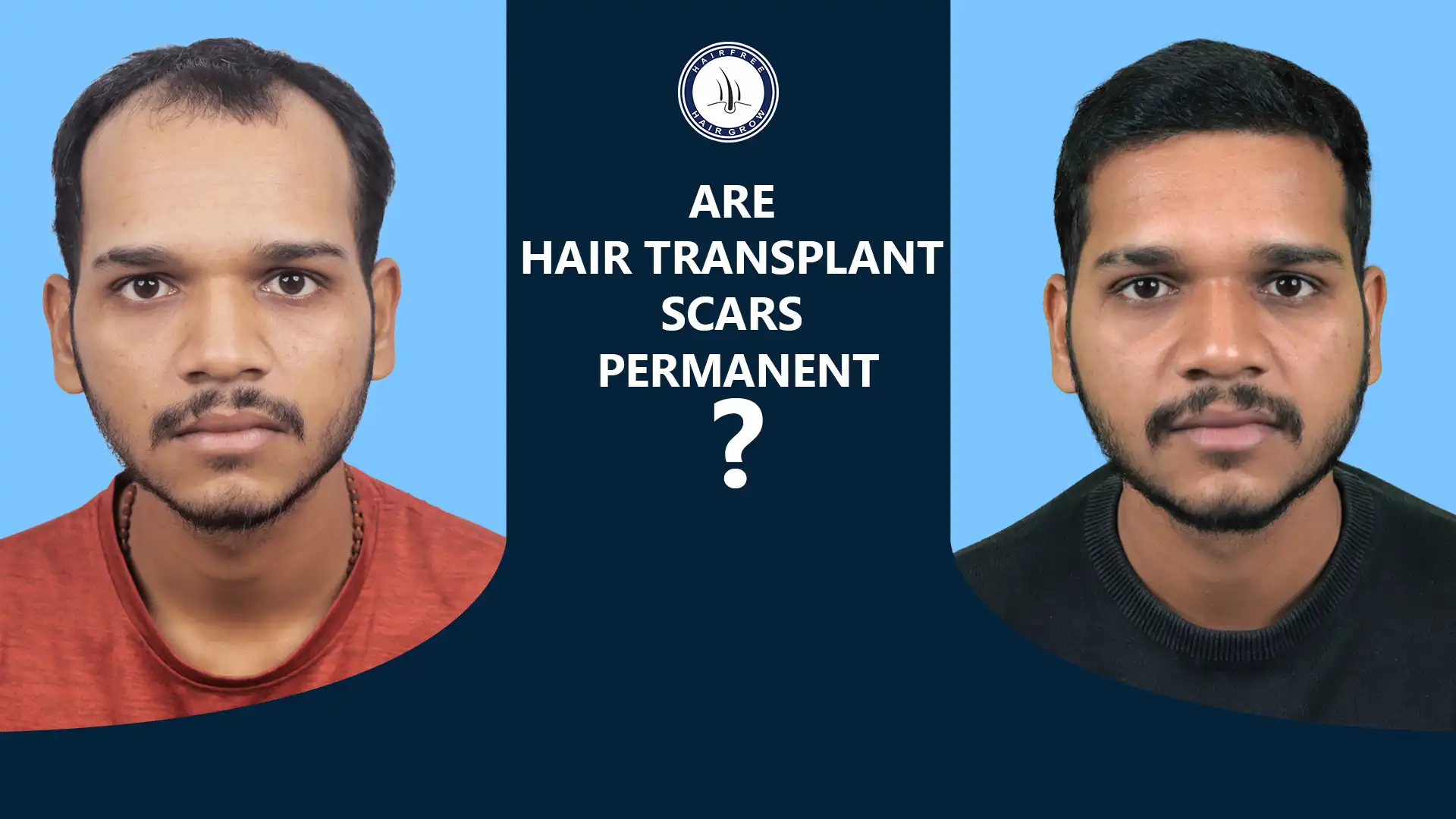
Are Hair Transplant Consultation Free? What to Expect and Why They Matter
Yes, many hair transplant clinics offer free consultations. These consultations allow you to discuss your hair loss concerns, evaluate your
Alopecia areata is a common immmunity disorder which causes uncontrolled hair loss.It affects roughly 6.8 million people in the United States and 147 million people worldwide. In most cases alopecia areata is causes hair loss in patches, that means you loss more hair at one place of your head.It is very important to know why you are suffering from alopecia areata, what are the causes of alopecia areata, what are the medication to stop alopecia areata you have to read this to get clear idea about alopceia areata.

It is also caused by low Immunity of the body which makes your hair follicle & Scalp and increase your hair loss. These disorders are characterized by a tendency to be hyperallergic, thyroiditis, and vitiligo.
It is also caused by the stress that you have taken in your daily life.
But there is no exact proof about the cause of alopecia areata yet.
Corticosteroids, powerful anti-inflammatory drugs that can increase the Immunity system to grow your hair. An other treatment methods are local injections, topical ointment application, or orally these are the treatment given by alopecia areata patient after visiting to the expert dermatoligist.
Your hair is a vital part of your overall appearance, and taking care of it involves a combination of good nutrition, stress management, gentle hair care, and proper scalp care. So, let’s dive into some practical tips for luscious locks.
Corticosteroids:
Alopecia Areata or Barbae is an autoimmune disease thus reducing the inflammation will stop hair loss. Corticosteroids are usually applied topically over affected area or they are available in solution form for oral intake.
Minoxidil:
This is a topical drug used to treat pattern baldness. Minoxidil has to be applied twice everyday. It is available in both foam and liquid solutions and the results are visible in a few weeks. Although lasting results can only appear after 3 months. Click to Read more about Minoxidil…
Diphencyprone (DPCP):
Medication is to be applied to bald patches. It is a little discomforting as there is redness, swelling, itching in the areas of application. This medication is used to trick the immune system to send the white blood cells to the surface of the skin to reduce inflammation and keeping hair follicles alive. Results take upto 2 months.
Anthralin:
This tar-like substance is applied to hairless patches once a day and left on for 30 minutes to up to a few hours, as per the advice of your physician. It irritates the skin, promoting hair growth. Results are usually visible within 8 to 12 weeks. Alongside, these medications there are many home remedies that you can do. Eat more garlic and turmeric based drinks as they have shown anti-inflammatory effects.

Yes, many hair transplant clinics offer free consultations. These consultations allow you to discuss your hair loss concerns, evaluate your

Generally, no, hair transplants are not covered by insurance in India, especially for cosmetic purposes like male pattern baldness. Hair

Yes, hair transplant scars are generally considered permanent, but their appearance can improve over time and be minimized with careful
Find Out in 3 Minutes, Your Hair Problem Solution.
Yes, hair often grows back in alopecia areata, especially in mild cases. Regrowth can happen naturally within months, but it’s unpredictable. Some experience full recovery, while others may have recurrent patches. Treatments can help, but results vary. Stay hopeful and consult a dermatologist for guidance.
Alopecia areata is mainly caused by an autoimmune reaction where the body’s immune system mistakenly attacks hair follicles, leading to hair loss. Genetics play a role, and triggers like stress or illness may contribute. It’s complex, and researchers are still uncovering why it happens to some people.
Alopecia areata is usually not permanent. Hair can grow back naturally, often within a year, especially in smaller patches. However, regrowth isn’t guaranteed, and some may experience recurring or persistent hair loss. Treatments can boost chances of regrowth, so talk to a doctor for personalized advice.
Alopecia areata is an autoimmune condition causing patchy hair loss, unlike androgenetic alopecia (pattern baldness) which is hormonal and gradual. It differs from telogen effluvium, triggered by stress or illness, affecting the whole scalp. Alopecia areata’s sudden, patchy pattern sets it apart. A dermatologist can clarify your type.
Stress doesn’t directly cause alopecia areata but can trigger or worsen it in those already predisposed. It’s an autoimmune condition, so genetics and immune system factors play a bigger role. Stress may act as a spark, but it’s not the root cause. Managing stress can help overall health.
Early signs of alopecia areata include small, round bald patches on the scalp or body, often noticed suddenly. You might see smooth, hairless skin or short, broken hairs. Itching or tingling may occur. Hair loss can spread, so see a doctor if you notice these signs.
Treatments for alopecia areata include corticosteroid creams, injections, or pills to calm the immune system, minoxidil to stimulate hair growth, and immunotherapy for severe cases. Newer options like JAK inhibitors show promise. Results vary, so a dermatologist can tailor a plan to your needs and monitor progress.
There’s no definitive cure for alopecia areata, but many experience full or partial hair regrowth with treatment or naturally. It’s unpredictable—some stay hair loss-free, while others see recurrence. Ongoing research offers hope for better treatments, so work with a doctor to manage it and stay positive.
Yes, alopecia areata is an autoimmune disorder. The immune system mistakenly attacks hair follicles, causing hair to fall out in patches. It’s not contagious or caused by lifestyle alone. Genetics and environmental triggers play a role. Understanding this can help you approach treatment with clarity and confidence.
Yes, alopecia areata is an autoimmune disorder. The immune system mistakenly attacks hair follicles, causing hair to fall out in patches. It’s not contagious or caused by lifestyle alone. Genetics and environmental triggers play a role. Understanding this can help you approach treatment with clarity and confidence.
Hair transplants are generally not recommended for alopecia areata because the autoimmune condition may attack transplanted follicles, leading to further hair loss. Treatments like corticosteroids or immunotherapy are preferred to address the root cause. Consult a dermatologist to explore options tailored to your situation before considering surgery.